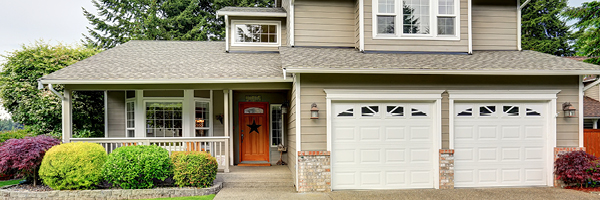
When you’re in the process of purchasing a home or condo or renting, you’ll likely also start the insurance buying process. If you’ve ever wondered what coverage protects the structure of the house itself, we can help. Dwelling coverage — also called Coverage A — is meant to cover the structure of the policyholder’s dwelling or home (walls, floors, windows and more).
Before we look at how dwelling coverage protects you, let’s dive deeper into what it is.
What is dwelling coverage on a homeowner’s policy?
Dwelling coverage has the potential to cover damage to the home’s physical structure. For example, if your house catches on fire and burns down, your dwelling insurance is the coverage that could save you from paying thousands of dollars to replace your home. Having said that, you should make sure the replacement cost on your dwelling insurance coverage reflects 100% of the cost to rebuild the dwelling.
Dwelling coverage is just as important for renters and condo owners as it is for homeowners. It’s called building additions and alterations coverage for renters and condo-owners. This means that you could use your dwelling/building additions and alterations coverage to replace things like wall coverings, carpet or other flooring, cabinets and more after a covered loss.
What does dwelling insurance cover?
It’s important to check your policy to find out exactly what may be covered, but here are a few instances that may be covered under dwelling insurance:
- Fire and smoke damage
- Wind damage
- Vandalism
- Lightning strikes
- Hail damage
- Debris removal (storm, auto accident and more)
Not all structural damage is covered by dwelling insurance. Here are a few situations that are not covered:
- Lack of proper maintenance to your systems such as plumbing
- Detached garage or any out-buildings
- Fencing around your house
- Outdoor items like trampolines, which may be offered as a special policy by your independent Grange Insurance agent.

Learn about our
Home Insurance
How much coverage do I need?
That depends on a few different factors. Dwelling insurance is meant to cover the cost of rebuilding your home based on what it’s worth and no more than that. Your home value may have increased if you made major renovations after purchasing a dwelling insurance policy. Your dwelling coverage won’t automatically reflect these renovations, so you may have to purchase more coverage in order to rebuild your home to its most recent condition in the event of damage.
Another factor is inflation. If the price of labor or supplies increase after you purchase dwelling coverage, your policy may not cover the entire cost to rebuild. In addition, you may see an increase in insurance cost by the insurance provider when you’re ready to renew because of inflation replacement cost increases. Here are a few scenarios that reflect the cost due to inflation:
- Supply chain issues have decreased supply driving up the cost of materials.
- Low interest rates have driven a very active housing market, thus increasing home values at a faster pace than we’ve seen in recent years.
- Lack of new home construction has also increased demand, driving up home values.
- With COVID-19 restrictions, many invest in their home renovations vs. travel which increases the need for a Coverage A review.
If you consider buying a newly built house in a housing development instead of replacing your home, it’s important to understand how dwelling insurance increases can impact costs for you as a homeowner. A customer may see their Coverage A increase from $400K to $600K for a home built in 2016. The customer may not think their home is worth that much since they could just buy a new home in a new subdivision for $400K. However, what they don’t understand is that contractors building a subdivision can buy their supplies in bulk, driving down costs. When a customer experiences a total loss on their home and they need to rebuild, they are paying full price because they don’t have the “bulk pricing” options as it is just one home instead of many.
How is Coverage A different from market value?
Market value is the price you paid for your house. Meanwhile, Coverage A is the price or cost it will take to rebuild your house at the same size, in the same spot and at equal quality as it was before, at today’s cost.
Protect the structure of your home
You’ve worked hard to become a homeowner, so protect it with the proper coverage. Talk to your local, independent Grange agent regarding the details of your situation, find out how much dwelling insurance coverage you’ll need and next steps in purchasing your own coverage.
Coverages described herein may not be available in all states. Please contact one of our local independent agents for complete details on coverages and discounts. If the policy coverage descriptions herein conflict with the language in the policy, the language in the policy applies. The material provided above is for informational, educational and/or suggestion purposes only, and does not imply coverage. WE RESERVE THE RIGHT TO REFUSE TO QUOTE ANY INDIVIDUAL PREMIUM RATE FOR THE INSURANCE HEREIN ADVERTISED. Applicable policies may be underwritten by Grange Insurance Company, Trustgard Insurance Company, Grange Indemnity Insurance Company, Grange Insurance Company of Michigan* and Grange Property & Casualty Insurance Company*, Integrity Insurance Company*, Integrity Property & Casualty Insurance Company*, Integrity Select Insurance Company*. *Not licensed in Pennsylvania
References
ValuePenguin
Bankrate